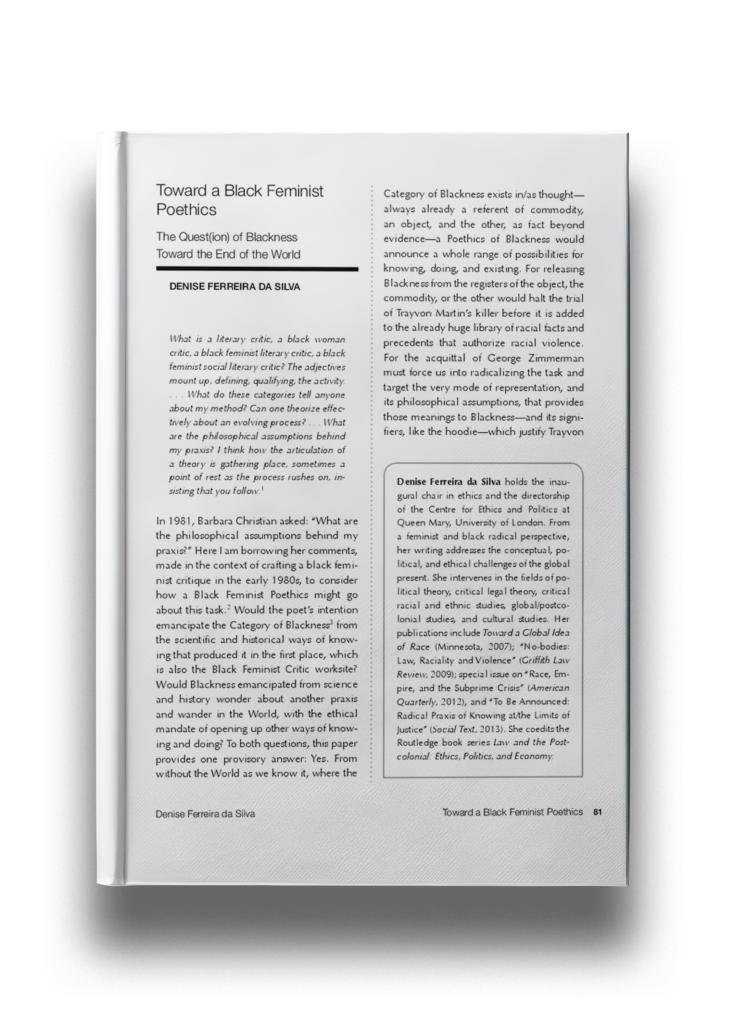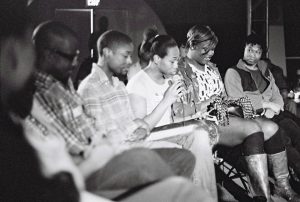Year
2018
Publisher
TBS The Black Scholar
Author
Denise Ferreira da Silva
Annotation
I’m currently writing about the production of inequality within contemporary art, in acknowledgement of what Denise Ferreira Da Silva in this essay calls its ‘colonial (juridic, economic, symbolic) architectures’ (p. 84). What Da Silva does here is extraordinary and politically critical for our times, in that she articulates Black Feminist Poethics as a mode of living and thinking which apprehends and moves beyond the categories of slavery (financial, based within timelines dedicated to and by a power of the concept of history and difference), towards a space of being that enables Blackness to move beyond the way slavery is predetermined. She follows C. L. R. James’s demand that ‘the task of black studies is the dismantling of Western thought’. (See the quote below). For me, this call to the absolute unpicking of the bonds of the capitalist slave narrative of Black history, written through capital accumulation, as an essential and only way of re-ontologising Black being, is particularly resonant in the current climate of Black Lives Matter and the demand that cultural institutions are reformulated. Taking Da Silva’s thinking on board, we need to understand that exhibiting the subject of Blackness is not enough (for it re-treads that same path of capital accumulation produced through slavery) but instead we need a total rethink of the temporal–spatial structures of what we serve to display and cherish in the name of poethics. This is very relevant to Visible.
Andrea Phillips
Would the poet’s intention emancipate the Category of Blackness from the scientific and historical ways of knowing that produced it in the first place, which is also the Black Feminist Critical worksite? Would Blackness emancipated from science and history wonder about another praxis and wander the World, with the ethical mandate of opening up other ways of knowing and doing?










